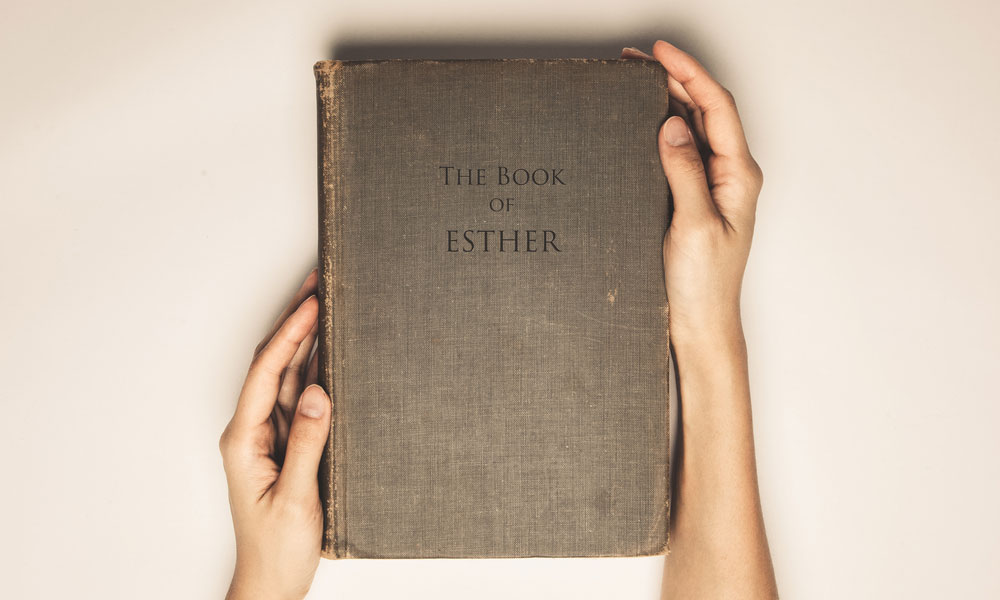(Esther - Part 1 | Part 2)
In the first part of this study, Esther-Part 1, we learned how Esther became queen of the most powerful ruler of this era and how the deeds of one evil man almost resulted in the annihilation of the Jews in the Persian Empire. In Part 2 we will see how two Jews, Mordecai and Esther, thwarted his evil plans.
The Scripture: Esther 4:1-3
“When Mordecai learned of all that had been done, he tore his clothes, put on sackcloth and ashes and went out into the city, wailing loudly and bitterly…In every province to which the edict and order of the king came, there was great mourning among the Jews.”
1. How did Mordecai and the Jews receive the news?
Esther sent out one of the king’s eunuchs to find out what was troubling Mordecai. Mordecai told him everything and gave him a copy of the edict.
The Scripture: Esther 4:8b
“He told him to urge her to go into the king’s presence to beg for mercy and plead with him for her people.”
2. What did Mordecai urge Esther to do?
Esther reminded him that if she appeared before the king without being summoned, she could be put to death.
3. What was Mordecai’s final statement?
Esther told him “to gather all the Jews in Susa to fast for her day and night.”
The Scripture: Esther 4:16b
“When this is done, I will go to the king even though it is against the law. And if I perish, I perish.”
4. What was Esther’s bold statement?
Esther went to work immediately, putting a bold plan into action, a plan that could result in her death. She made an unsummoned appearance before the king. Although he had not called for her in thirty days, he was pleased to see her.
The Scripture: Esther 5:3-4
“What is your request?”
5. What did he ask her?
6. What was her answer?
At the banquet, the king again asked Esther what her request was.
The Scripture: Esther 5:7-8
“Esther replied, ‘My petition and my request is this: If the king regards me with favor and if it pleases the king to grant my petition and fulfill my request, let the king and Haman come tomorrow to the banquet I will prepare for them. Then I will answer the king's question.’”
7. What was Esther’s answer?
Haman was overjoyed, believing that he had been singled out for a particular honor. His pleasure was ruined, however, by the sight of Mordecai, who again did not bow in his presence. When Haman shared everything with his family, they offered him a solution.
The Scripture: Esther 5:14
“Have gallows built, seventy-five feet high and ask the king in the morning to have Mordecai hanged on it.”
8. What did they suggest?
Of course, man-made pleasure seldom pleases God. The king’s campaign against Greece had gone badly. Perhaps that is the reason he could not sleep and he ordered the record of his reign to be read to him.
The Scripture: Esther 6:2-3
“It was found recorded there that Mordecai had exposed Bigthana and Teresh, who of the king’s officers….who had conspired to assassinate King Xerxes. ‘What honor and recognition has Mordecai received for this?’ the king asked. ‘Nothing has been done for him,’ his attendants answered.”
9. What did the king learn?
10. What else did he learn?
At this point, we see God’s perfect timing. Just then Haman arrived at the palace to speak to the king about hanging Mordecai. Of course, Haman did not know what the king had just learned.
The Scripture: Esther 6:6
“What should be done for the man the king delights to honor?”
11. What did the king ask him?
Haman, thinking he was the man the king wanted to honor suggested the man be given a royal crest on his head and beautiful robes. A man of honor should lead him riding the king’s horse through the city streets proclaiming,”This is what is done for the man the king delights to honor.”
12. Who did the king assign to do this?
Afterward, Haman rushed home furious. His wife and advisors urged him to give up the battle with Mordecai.
The Scripture: Esther 6:13
“Since Mordecai, before whom your downfall has started, is of Jewish origin, you cannot stand against him – you will surely come to ruin.”
13. Why?
The Scripture: Esther 6:14
“While they were still talking with him, the king’s eunuchs arrived and hurried Haman away to the banquet Esther had prepared.”
14. What happened just then?
At the banquet the king again asked Esther what her request was.
The Scripture: Esther 7:3-4
“Then Queen Esther answered, ‘Grant me my life….and spare my people….for I and my people have been sold for destruction and slaughter and annihilation.”
15. What was Esther’s request?
The Scripture: Esther 7:5-6
“King Xerxes asked Queen Esther, ‘Who is he? Where is the man who has dared to do such a thing?’ Esther said, ‘The adversary and enemy is this vile Haman.”
16. What was the king’s next question?
17. What was Esther’s answer?
In the confusion that followed as Haman begged the queen for his life, he fell on her couch. The king thought he was molesting the queen. Haman was immediately executed on the gallows he had erected for Mordecai, and Mordecai was given his estate, but there was still the problem of the original edict.
The Scripture: Esther 8:5
Esther said, “Let an order be written overruling the dispatches that Haman wrote to destroy the Jews in all the king’s provinces.”
18. What was Esther’s request?
The Scripture: Esther 8:8
“The king’s command: “Now write another decree….for no document written in the kings’ name and sealed with his ring can be revoked.”
19. What was the king’s command?
The Scripture: Esther 8:11
“The king’s edict granted the Jews in every city the right to assemble and protect themselves, to destroy, kill and annihilate any armed force that might attack them and their property.
20. What did that edict do?
The Scripture: Esther 8:16
“For the Jews it was a time of happiness and joy, gladness and honor with feasting and celebration.”
21. How did the Jews respond?
Upon Esther’s request the people of Susa were allowed to extend their rejoicing another day and that Haman’s sons be hanged.
The Scripture: Esther 9:21-22
“Mordecai sent letters to all the Jews throughout the provinces of King Xerxes to have them celebrate annually the fourteenth and fifteenth days of the month of Adar as the time when the Jews got relief from their enemies and as the month when their sorrow was turned into joy and their mourning into a day of celebrating. He told them to observe the days of feasting and joy and giving presents and gifts to the poor.”
22. What did Mordecai do?
This anniversary called Purim is still celebrated today. The name Pur comes from the casting of the Pur.
The Scripture: Esther 10:3
“Mordecai the Jew was second in rank to King Xerxes, preeminent among the Jews and held in high esteem by his many fellow Jews because he worked for the good of his people and spoke up for the welfare of all the Jews.”
23. What happened to Mordecai?
Throughout history God has not allowed Israel’s enemies, who try to bring harm to the Jews whether personally or nationally, to go unpunished in the end. This is a reality we should always remember.
The Answers
- They tore their clothes, put on sackcloth and ashes and wailed loudly and bitterly in mourning.
- To go before the king and plead with him for her people
- "Who knows but that you have come to royal position for such a time as this?"
- "If I perish, perish."
- What is your request?
- She invited him and Haman to come to a banquet she had prepared for him.
- For him and Haman to come to a second banquet she would prepare. She would answer the question then.
- That he have a gallows built and ask the king to have Mordecai hanged on it
- Of Mordecai's" exposure of the two men who had conspired to assassinate him
- That Mordecai had never been rewarded
- "What should be done for the man the king delights to honor?"
- Haman
- They believed that because Mordecai was of Jewish origin that Haman would not be able to stand against him.
- The king's eunuchs arrived to take Haman to Esther's banquet.
- That the king grant her and her people their lives
- Who had done such a thing?
- That it was Haman
- That an order be written countermanding Haman's orders to destroy the Jews
- That was because no document signed by the king could be revoked, a second document be written by Mordecai
- It gave the Jews the right to defend themselves against any armed forces that might attack them, their families and their property
- With happiness and joy, gladness and honor, feasting and celebrating
- He sent letters to all the Jews telling them to celebrate the memorial of these days as a time when the Jews got relief from the enemies and their sorrow was turned into joy and their mourning into celebrating and as a time for giving gifts to the poor.
- He was made second in command to the king and was preeminent among the Jews because He worked for the good of his people and spoke up for the welfare of all the Jews.
All scripture quotations in this publication are from The Holy Bible, New international Version
© Copyright 1973, 1978, 1984 New International Bible Society
© Copyright 2007 by JoAnne Sekowsky





